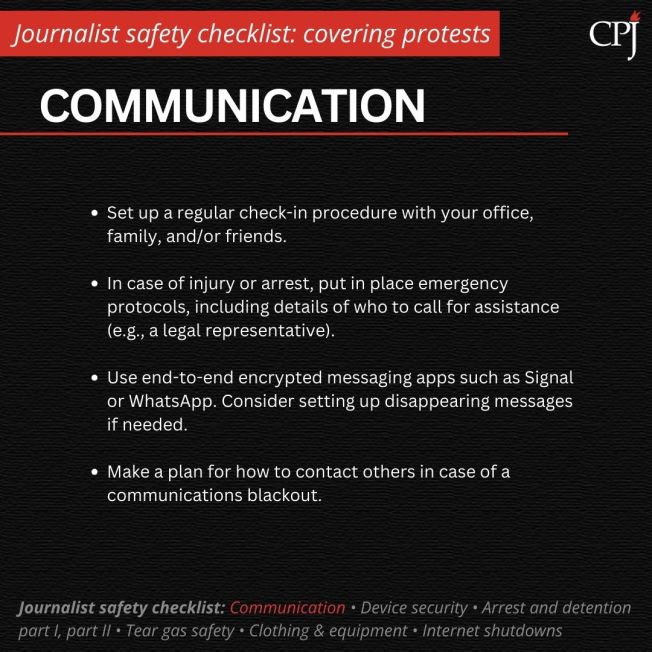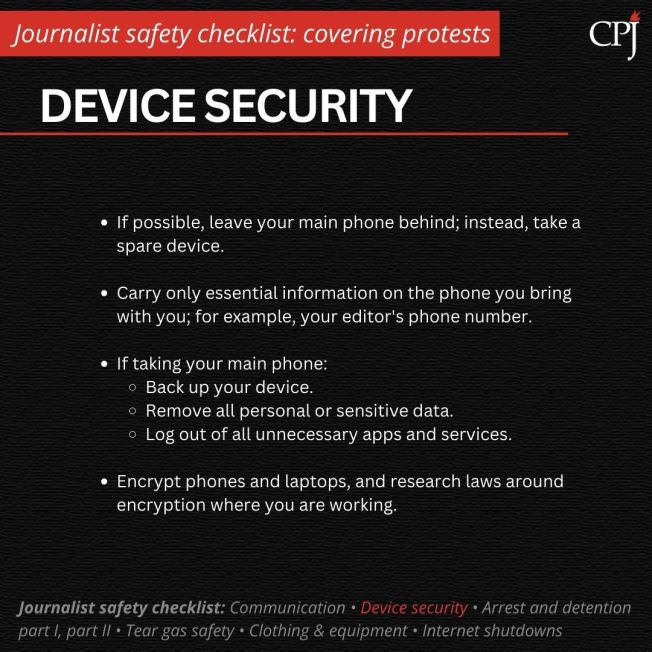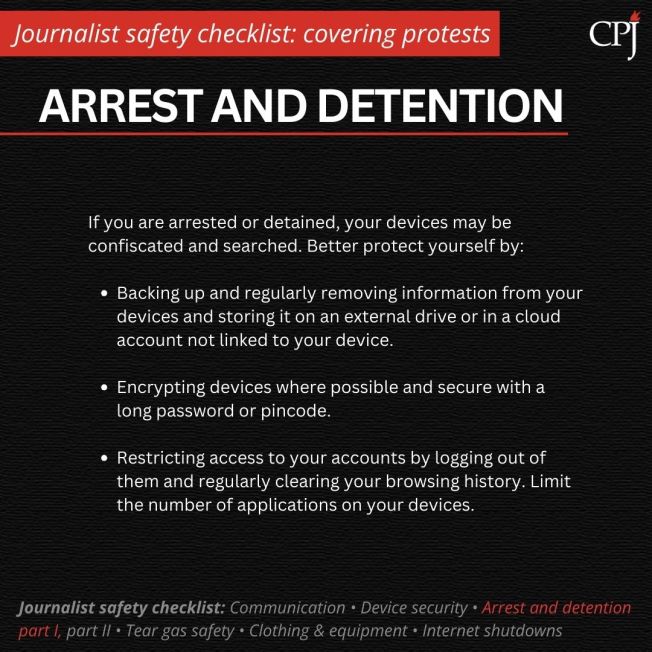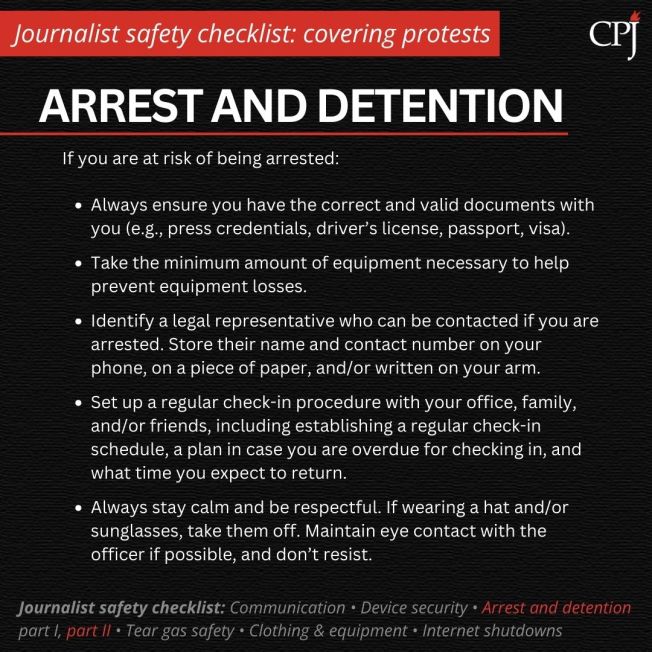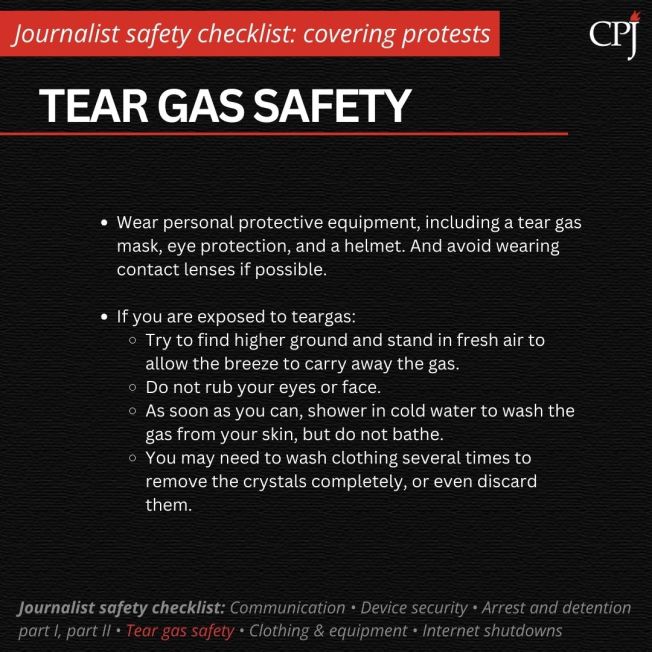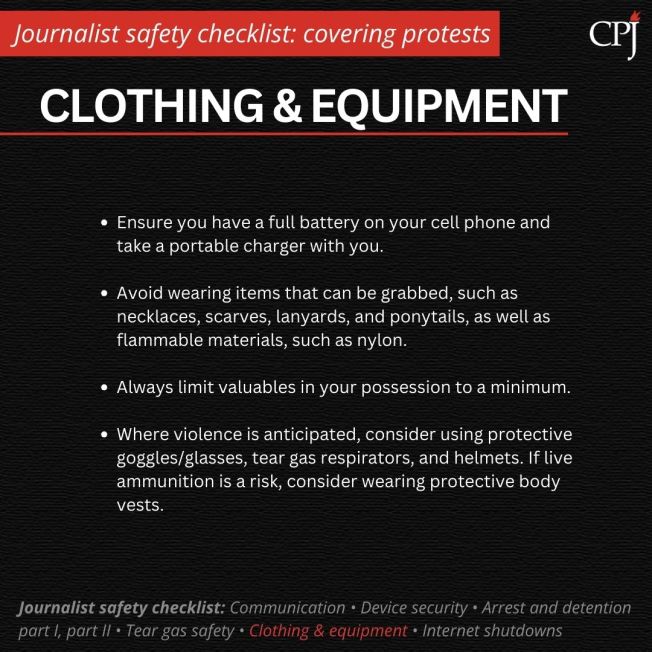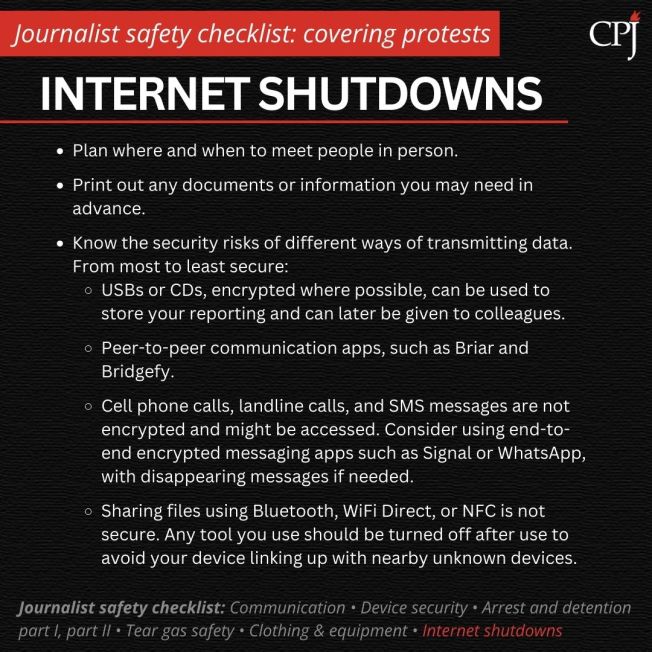As Senegalese security forces sought to quell protests in February after the postponement of the presidential election, CPJ documented how at least 25 journalists reporting in the capital, Dakar, were physically attacked, briefly detained, targeted with tear gas, or harassed by police.
In response, CPJ has assembled recommendations for journalists working in Senegal, including how to prepare for and respond to tear gas, internet shutdowns, and arrest or detention.
Find CPJ’s protest resources here.
If you would like to speak with someone about threats you are facing or concerned about, please email emergencies@cpj.org. If you are a journalist looking for safety information, you can also message CPJ’s automated chatbot on WhatsApp at +1 206 590 6191.
This content originally appeared on Committee to Protect Journalists and was authored by Committee to Protect Journalists.
Committee to Protect Journalists | Radio Free (2024-03-01T21:07:22+00:00) Safety resources for covering protests in Senegal. Retrieved from https://www.radiofree.org/2024/03/01/safety-resources-for-covering-protests-in-senegal/
Please log in to upload a file.
There are no updates yet.
Click the Upload button above to add an update.
